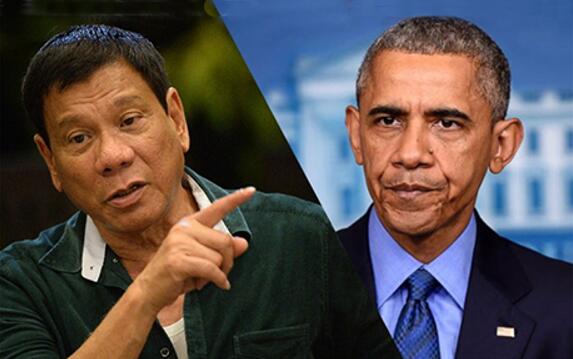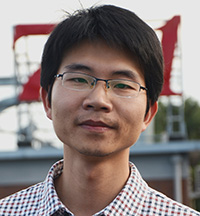President Rodrigo Roa Duterte’s visit to China on 18-21 October 2016 raised very serious security concerns in Washington DC when the Philippine’s President announced his intention to “separate” from the United States “militarily” and “economically”. Though Duterte clarified that his declaration should not be interpreted as cutting diplomatic ties with its long-time security ally, his many “anti-American” overtures since he assumed office more than three months ago was already making the United States very uncomfortable.

Some observers have already made a careless conclusion that Duterte’s foreign policy indicated an apparent bowing to China, a drastic departure from the foreign policy of balancing of former President Benigno Simeon Aquino III. Others continue to argue that Duterte is hedging with the two major powers in order to get the best of both worlds.
What is not fully understood is that Duterte is currently pursuing a foreign policy of deliberate ambiguity towards China and the United States. Better known as the policy of strategic ambiguity, it makes Duterte highly unpredictable before the two major powers that are currently competing for global influence. By being unpredictable, Duterte puts the two major powers, and even the whole international community, in a “guessing-game” situation that increases the leverage of the Philippines to deal with China, the United States and other countries, for that matter.
Though this foreign policy of deliberate ambiguity has concomitant risks due to the obvious absence of policy coherence, Duterte has strategic clarity on what he really stands for: to advance his domestic agenda. Duterte’s foreign policy is just an extension of his domestic policy.
It is inaccurate to say that Duterte’s foremost domestic agenda is the war on drugs. His main domestic agenda is to uplift the lives of the vast majority Filipinos who have long been denied economic development opportunities. Thus, Duterte is pivoting to China not for geopolitical considerations but as a pragmatic move to promote trade, investments, tourism, and development assistance [from which revenue can be used for] for purposes of infrastructure improvements, telecommunication upgrades, and agricultural modernizations.
The South China Sea dispute is out of Duterte’s priority at the moment as the issue hampers the Philippines’ long historic ties with China that dates back to the 9th century. While not surrendering the Philippine’s long-standing position in the South China Sea, particularly in the aftermath of the international arbitration where the Philippines enjoyed a landslide legal victory, Duterte is not asserting Philippine claims as a tactical move to bring China to his side. Duterte’s foreign policy priority is to pursue his domestic policy.
As a self-proclaimed “socialist,” Duterte wants the Filipinos to remember him as a “mass-oriented” president in a country ruled by traditional political elites where the rich get richer and the poor get poorer. Duterte wants to project himself as the country’s last hope for a better Philippines being the only Philippine President who is relatively insulated from the parochial interest of dominant elites in Philippine society. Duterte is scared of no one but the 16 million Filipinos who voted for him. There is no doubt that Duterte is a populist president.
Duterte is raising an “anti-American” rhetoric not because of his hatred of the Americans but mainly because of his strong aversion of American exceptionalism and neo-colonialism. Duterte has personal grudges against “U.S. interventions” in the Philippines. An example is the 2002 case of Michael Terrence Meiring accused of a bombing offence in Davao City. Meiring managed to escape the Philippines due to alleged American interference. As the first Filipino president from Mindanao, Duterte has also developed a bitter view of the U.S. regarding the involvement of American colonial troops in the Bud Dajo Massacre of around 600 Moros in 1906. Duterte’s strong patriotism propels him to be critical of American foreign policy.
But Duterte’s critical overtures against the U.S. also have domestic political purpose: appeasing the Philippine communist movement. The Communist Party of the Philippines (CPP) is pleased to see Duterte challenging U.S. hegemony in the Philippines. In the peace talks between the Government of the Philippines (GPH) and the National Democratic Front (NDF), the CPP described the confidence level of the two parties to have reached its highest level in history because of Duterte’s remarks to stop U.S.-Philippines joint patrols in the South China Sea and the removal of American troops stationed in Mindanao.
Despite his criticisms of the U.S., Duterte has not yet called for the abrogation of the 1951 Mutual Defense Treaty (MDT), which is the cornerstone of Philippine-American security alliance. Duterte clarified that when he declared a separation from the U.S. militarily and economically, what he meant was less reliance on the U.S. in order to pursue a more independent foreign policy.
During the visit of US Assistant Secretary Daniel Russel to the Philippines on 24 October 2016, Philippine Foreign Affairs Secretary Perfecto Yasay reaffirmed the importance of Philippine-American alliance. Yasay also clarified that when President Duterte talked about separation from the U.S., what the President meant was “breaking away from the debilitating mindset of dependency and subservience – economically and militarily – that have perpetuated our ‘little brown brother’ image to America, which has stunted our growth and advancement.”
Indeed, Duterte’s various pronouncements are conveying mixed signals about the direction of his foreign policy. Those asking for clarity of his foreign policy positions will be severely disappointed as Duterte is pursuing a policy of deliberate ambiguity; so, he can call the shots, be the center of attention, and by so doing, get his upper hand of the current situation.


